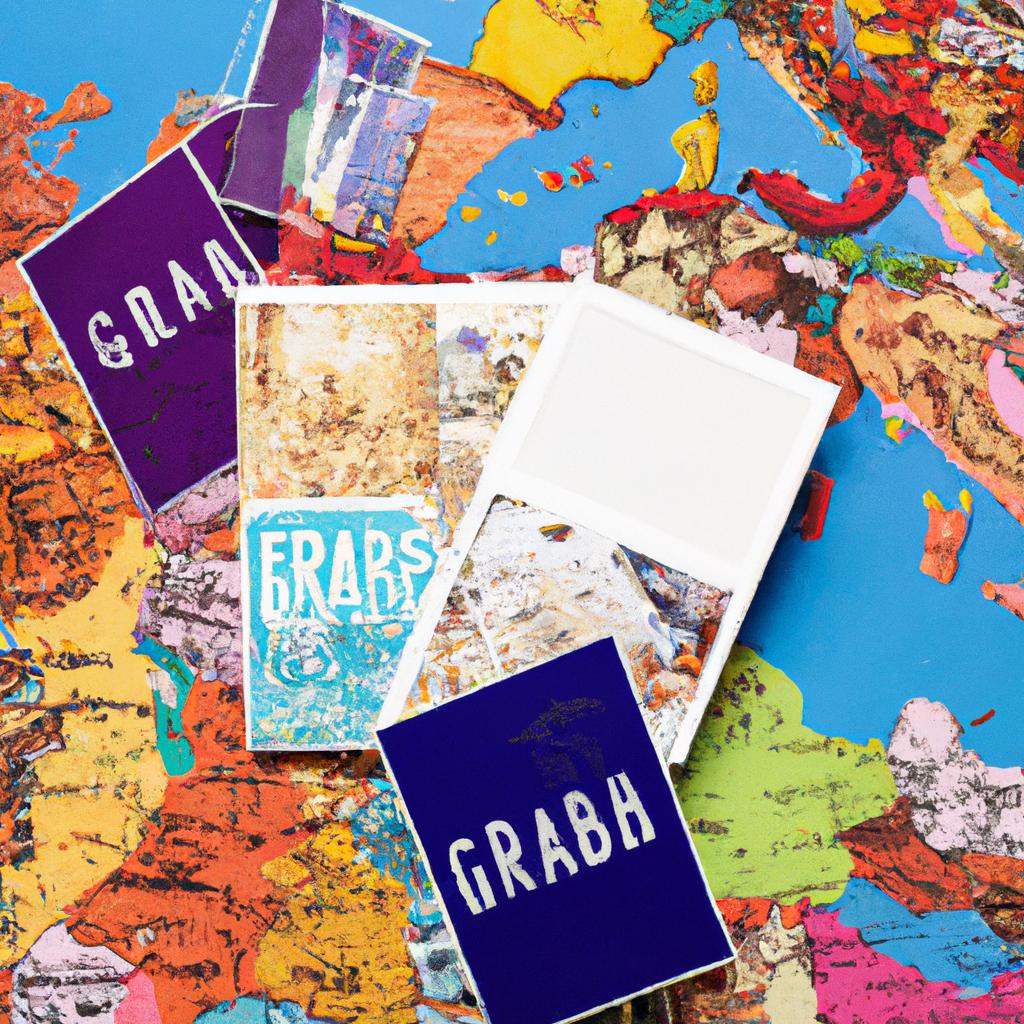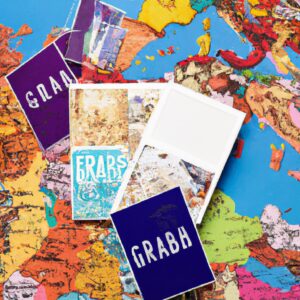Traveling Europe on a Budget: Tips for Affordable and Memorable Trips
There is something special about exploring the centuries-old sites, sights, and cities of Europe. Unfortunately, most people view this prestigious continent as too expensive for a budget traveler. However, with some careful planning, you can plan a vacation to Europe without breaking the bank.
For those wanting to save money while still having a wonderful experience touring Europe, here are some essential tips for traveling on a budget.
Comparison of European Destinations
One of the biggest advantages of visiting Europe is the sheer number of countries and destinations available. Depending on where you choose to visit, you might pay significantly different prices. For example, Eastern European nations such as Poland and Romania tend to be more budget-friendly than countries like Italy or France. When looking for an affordable destination, it’s important to compare airfare, lodging costs, and the cost of living in each country.
Tips for Accommodations
Finding affordable accommodation is often one of the biggest challenges when traveling in Europe. Fortunately, there are several options available. Home-sharing services such as Airbnb offer unique and often inexpensive rental homes or apartments that can be booked for a few days or weeks at a time. Additionally, hostels offer clean and safe places to stay in most major cities, sometimes for as little as $20 per night. Vacation rentals can also be a great option and can provide you with the amenities needed for a comfortable stay.
Comparing European Destinations for Budget Travelers
Traveling to Europe can be a great way to experience new cultures, sights, and sounds. However, many travelers are worried about the expensive costs associated with visiting this part of the world. But, with some careful planning and research, you can make your European vacation more affordable. To get the most out of your trip while staying within your budget, it’s important to consider which countries will offer the best deal.
When deciding which country to visit, think about the total cost of airfare, lodging, and cost of living. It can be helpful to use travel websites, such as Kayak or Skyscanner, to compare flight prices. Additionally, look into the cost of accommodation in hotels or vacation rentals, and research the cost of everyday living expenses like eating out, groceries, transportation, etc. Different countries may offer different prices for the same activities, so you’ll have to choose carefully.
- Use travel websites, such as Kayak or Skyscanner, to compare flight prices.
- Consider the cost of accommodation in hotels or vacation rentals.
- Research the cost of everyday living expenses like eating out, groceries, transportation, etc.
By comparing the cost of airfare, lodging, and cost of living between different countries, you can find the most budget-friendly destination for your European trip.
Tips for Accommodations
When it comes to lodging on a budget in Europe, travelers have several options. Home-sharing services such as AirBnB are becoming increasingly popular among budget travelers due to their comparatively low prices and comfort. Hostels also offer affordable rates, especially when multiple travelers room together. Vacation rental homes and apartments can be a great deal and are ideal for travelers looking for a more home-like experience.
Transportation on a Budget
When traveling to Europe on a budget, getting from one place to another is an important factor to consider. Luckily, there are plenty of cost-friendly options for you to choose from. Trains are the most convenient way to get around, as they usually run on time and are cheaper than airplanes. Bus travel is also a great option for budget travelers, as there are several budget carriers that offer competitive prices. Walking in cities is also a great way to save money, as it’s free and can be a great way to explore and immerse yourself in the culture.
Cost-Efficient Food Options
When it comes to eating on a budget while traveling in Europe, there are several options worth considering. Street food is often the most economical option, as many countries have traditional snacks and meals that are easy to grab on-the-go. Cafeteria-style restaurants can also offer excellent value for your money, as they usually provide larger portions at affordable prices. For the sweet tooth, bakeries are usually abundant and offer delicious desserts and pastries for a fraction of the cost of sit-down restaurants.
Ideas for Free or Low Cost Activities
Travelling in Europe can be an amazing experience, but it doesn’t mean you have to spend a fortune. There are many activities for budget travellers that are both free and low cost. Here are some ideas to get you started.
- Museums: Visit free local museums and galleries to discover more about the culture and art of the area. Most major cities have a number of cultural institutions that are free to visit and explore.
- Parks: Take a wander through beautiful parks and outdoor spaces around the city. Many parks will hold festivals throughout the year and offer a great place to relax with friends.
- Festivals: Get involved in local festivals and events for an enthralling experience. Most festivals have free admission.
- Group Tours: Join a group tour to save on accommodation and transportation costs. Group tours usually have guides who know all the best places to visit and can offer recommendations.
Whether you’re looking for a fun time or a chance to learn more about your destination, you’ll find there’s something for everyone when it comes to travelling on a budget.
Sight-Seeing Opportunities on a Budget
Europe has an array of stunning sights and attractions for travelers, including historical monuments, famous works of art, natural wonders, and much more. But sight-seeing in Europe can be expensive, making it more difficult to include these experiences in a budget-friendly trip. Fear not—there are ways to make the most out of your sightseeing without breaking the bank.
First, research ahead of time so you know about free attractions and discounts. Many museums and galleries offer free admission during certain hours or days, while historic buildings and other attractions may offer a reduced admission fee. Additionally, many cities have passes that give travelers access to multiple attractions at a discounted price.
Walking is a great way to explore the beauty of each city, as many of the highlights are concentrated in the center, and it will save you money from transportation costs. Additionally, there are a variety of walking tours, offering plenty of information and unique perspectives, and some of them are free or pay what you wish.
When it comes to tourist hot spots, such as Notre Dame Cathedral or the Eiffel Tower, try to time your visit intelligently. Tourist sites are often less crowded during earlier or later hours in the day, and lines tend to be shorter. Additionally, many attractions offer a discount if you purchase tickets online.
Finally, for those who don’t mind taking public transportation, look into day passes or week passes that you can use across cities. This will help you save money on transportation, and also give you freedom to explore more with less worry about transportation costs.
With these tips in mind, any traveler can make the most out of their sightseeing experiences without breaking the bank. With a little bit of research and planning, you can find budget-friendly options for enjoying all the beauty of Europe.
Discounts and Deals
We all love saving money, right? Luckily, there are plenty of ways to acquire discounts on various expenses while traveling in Europe. Here are a few tips for finding deals:
- Look online for deals on flights, transportation, and lodging. Sites such as Expedia, Skyscanner, and Booking offer some great discounts.
- Sign up for loyalty programs at hotels, hostels, and attractions. These can provide extra savings on your trip.
- Ask locals or hotel staff for their recommendations. They often know of special discounts or promotions.
- Consider buying a city transit pass. It will save you money over time if you plan to use public transit often.
- Check out student-only discounts at museums and other attractions.
- Try haggling for lower prices on goods and services in markets.
- Book restaurants through sites such as Groupon, which offer discounted meals.
Be sure to research potential discounts before embarking on your trip – you never know what kind of deals you might find!
Packing Strategies
It’s important to remember that traveling light will help you stay within budget while traveling in Europe. Airlines often charge for checked bags, so packing lightly will save you money. Try to carry only what is necessary and plan ahead by making a list of items you’ll need. It’s also beneficial to look for ways to reduce the amount of luggage you have. For example, wearing your biggest jacket on the plane to avoid having to pack it. Additionally, opt for packing cubes which are small, lightweight bags that can easily fit into backpacks or suitcases and make it easier to sort out items.
Emergency Contingency Plans
Traveling can be unpredictable, and while you’re on your budget European trip, unexpected events or last-minute cancellations can arise. To make sure you’re prepared for anything that comes your way, here are some tips and suggestions.
- Before you depart, make copies of all your documents. It’s also helpful to have a digital copy of your passport and visa stored securely online in case you lose the physical copies.
- If you’re going to be traveling by train or plane, make sure that you have tickets that are valid and unexpired. It’s also important to confirm with the airlines or railway company the day before departure as timetables can change without notice.
- If you get lost during your travels, try to stay calm and ask a local for help. It’s also a good idea to carry an offline map of the city or region that you’re visiting to help you find your way back.
- If possible, stay in touch with someone who knows your itinerary. Let them know when and where you’ll be and check in from time to time to let them know that you’re safe.
- And if you have a change of plans, make sure to notify the people who are expecting you as soon as you can, so that they don’t worry.
By being prepared for any eventuality, you’ll be able to enjoy your European vacation without any unnecessary stress.
Advice on Currency Conversion
Taking a trip to Europe can be an exciting experience, but navigating currency conversions can be tricky. Fortunately, there are some simple strategies to make the process easier and save money while doing so. A few of the most important points to keep in mind are as follows:
- Do research to know the current conversion rate from euro to your local currency.
- Remember to account for any transaction fees when converting money.
- If possible, try to withdraw money directly from an ATM in the country you’re visiting.
- Understand any fees associated with using your credit card abroad.
- Be prepared to handle any discrepancy in prices that could occur due to exchange rates.
By utilizing these tips, budget travelers can ensure that they get the most out of their money while traveling Europe.
Conclusion
When planning a trip to Europe, it is important to be mindful of your budget. With careful planning and research, you can create an affordable and memorable experience. Consider researching transportation, accommodations, food, and activities that fit within your budget. Look for discounts and deals that could help reduce costs. Pack light and plan a contingency plan for any unexpected events that may arise. Finally, be aware of money conversion and other related issues. With the right approach, you can take advantage of all that Europe has to offer without breaking the bank!
comments: 0

